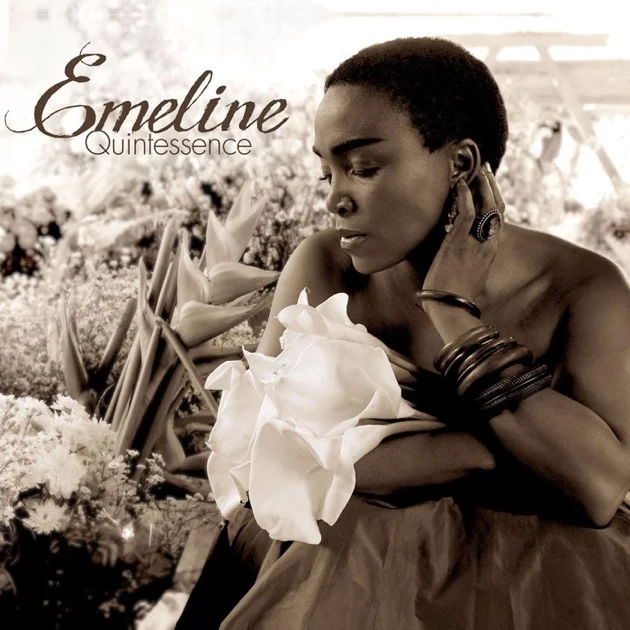Misty Jean is a Haitian konpa singer and former Miss West Indies (2001) whose 2004 debut album Plus Pres De Toi established her as one of the first breakout female solo artists in a historically male-dominated genre. Across four studio albums, multiple live performances, and an acting career, she has navigated the economic constraints and gender barriers facing female musicians in Haiti and the diaspora.
This profile traces her artistic journey, discography, and candid reflections on why the Haitian music industry has historically sidelined women artists—and what artists themselves can do about it.
From Early Performances to Miss West Indies: 1980–2001
Misty Jean was born circa 1980 in Haiti. She began performing at age three with the Institut de Danse Lynn Williams Rouzier, a prestigious dance school in Haiti where the founder trained under the legendary Lavinia Williams and studied at Carnegie Hall. At age seven, she performed in amateur singing contests, displaying the vocal talent that would define her career.
By 1998, she had expanded her stage presence, performing at “La Soiree Magique De La Guitare” with acclaimed pianist Raoul Denis Jr. and the Widmaier family musical ensemble, whose members included musicians from Zekle, a respected Haitian folk, jazz, and konpa group. In 1999, she was selected by Haitel, Haiti’s leading telecommunications company, as the face of a major national promotional campaign.
Her breakthrough moment came in February 2001, when she traveled to Saint Maarten and was crowned Miss West Indies, winning the talent and personality categories in a competition representing twenty-two countries. The same year, she performed at a concert titled “Femme,” hosted by legendary Haitian singer Yole Derose, at the Ritz Kinam in Port-au-Prince on May 27, 2001.
Within the following years, she was crowned Miss de la Francophonie (February 2002) and Queen of Carnival at the Greater Miami Mardi Gras (April 2003). These achievements positioned her as a rising figure in Haitian cultural circles, and by 2003, she had relocated to Miami, signaling her shift toward a professional music career.
The Debut: Plus Pres De Toi (2004) and Industry Entry
In June 2004, Misty Jean released her debut studio album, Plus Pres De Toi (Closer to You), on the Kreyol Music label under producer and label owner Jeff Wainwright. Wainwright, a Miami-based music executive with over thirty years in the industry, had built a reputation for signing and developing artists.
The album was supported by a comprehensive marketing campaign including radio play, print media, television appearances, and performances at major Haitian festivals and venues.
The album introduced listeners to a stylistically diverse set of konpa, zouk, and dance-floor tracks.
Key songs included “Ce Ou Mwen Vle” (That’s Who I Want), a high-energy showcase for her vocal range; “Maladie D’amour” (Love Sickness), a heartfelt ballad exploring infidelity and emotional resilience; “Patizan” (Partisan), a mid-tempo groover; and “Ti Bway” (Little Fella), a dance track that resonated with broader konpa audiences.

The timing was strategic. While female singers existed in Haitian music, most occupied roles as background vocalists or dancers. Solo female konpa artists were rare.
Marie-Christine Jeanty, a moderator for a Haitian music site and contemporary observer, noted at the time: “In the konpa scene, there was a void in terms of female solo artists. Emeline Michel is not categorized as konpa. Those earlier female artists were first introduced as part of a band; she came solo and formed her own band.”
By late 2004, Misty Jean had swept major awards. She was honored as Female Singer of the Year by Ticket d’Or magazine in Haiti, and on July 4, 2004, she performed at Bayfront Park in Miami alongside American rapper Lil’ Kim, further raising her international profile.
Second Album and Market Expansion: Konpa A Gogo (2006)
In August 2004, Misty Jean undertook a tour of the French Antilles (Guadeloupe, Martinique) and France, building audiences beyond Haiti and North America. This international push was followed by her second studio album, Konpa A Gogo, released in May 2006.
The album showcased both original compositions and remakes. Featured tracks included the title song “Konpa A Gogo” (a collaboration with Caribbean artist Kaysha), “Car Wash,” “Paradi Lanmou” (Paradise of Love), a duet titled “S’abandonner” with vocalist Thierry Cham, “Hear the Tam Tam,” and “Camionette,” a reimagining of a song by the legendary duo Claudette et Ti Pierre.
Notably, Konpa A Gogo was better received in the French Caribbean and France than in Haiti and the United States. Critics and some Haitian fans argued that the album catered to international markets at the expense of her home audience. However, Jeanty observed: “She made more of an impact at first in the French Antilles, and Haitians jumped on the wagon after. She had a new flavor to offer and great stage presence.”
Despite its commercial success overseas, the album was perceived by some as lacking the artistic coherence of her debut. Misty Jean would acknowledge this shift in strategy in later interviews. In November 2006, she was again awarded Female Singer of the Year by Ticket d’Or.

Artistic Maturation: Li Pa Twò Ta (2008)
By 2008, Misty Jean had regrouped creatively. Her third studio album, Li Pa Twò Ta (It’s Not Too Late), released in April 2008, marked a turning point in her career. Unlike the preceding album, this record combined the commercial appeal of her debut with enhanced artistic sophistication and deeper lyrical content.
The album featured an expanded range of genres—ballads showcasing her vocal depth, mid-tempo songs, and high-energy dance tracks—all anchored in the konpa and zouk styles that had built her reputation.
Standout tracks included “Kijan Lari A Ye” (How Things Are), “Tu Pleures” (You Weep), “Vini’m Bo’w” (Come Close to Me), the title track “Li Pa Two Ta,” “Lanmou Tounen Prizon” (Love Becomes Prison), and “Tam Tam,” a duet with Puerto Rican rapper Shino.
“Ne Touche pa a Mon Homme” (Don’t Touch My Man) and “Tu Pleures” showcased her vocal range in intimate arrangements. “Valè Fanm” (Women’s Worth), a female empowerment anthem featuring vocalist Martine Marseille, marked a significant artistic departure—moving away from her earlier focus on heartbreak and romantic vulnerability toward assertive messaging about gender and dignity.
The album also included “Hommage A Ti Manno,” a tribute demonstrating her connection to Haitian musical tradition. Critics and fans recognized Li Pa Twò Ta as her most accomplished work to date, signaling that she had achieved the maturity and creative control absent from Konpa A Gogo.
Her voice—trained in classical traditions but capable of navigating multiple genres—was finally showcased in full.
Beyond Music: Acting Debut and Personal Visibility
In June 2009, Misty Jean made her acting debut in the film The Price to Pay, directed by acclaimed Haitian filmmaker Mora Etienne Jr. She played the lead role of Zoulmie. In interviews, she described the experience as both challenging and transformative, requiring her to explore dramatic territory far removed from performance music.
Throughout her career, Misty Jean has attracted significant media attention beyond music. Her physical appearance—widely discussed in Haitian and Caribbean media—contributed to her marketability. However, she has been clear that while looks matter in entertainment, they are far from the only factor in building lasting stardom. In interviews, she emphasized that true stardom requires talent, financial acumen, discipline, and an unshakeable belief in oneself.

Discography and Awards
Misty Jean has released four studio albums and two live albums, along with multiple music videos and live performances across Haiti, the French Caribbean, North America, and Europe.
- Plus Pres De Toi (2004) — debut album; includes “Ce Ou Mwen Vle,” “Maladie D’amour,” “Patizan,” “Ti Bway”
- Konpa A Gogo (2006) — international focus; includes “Konpa A Gogo” (feat. Kaysha), “Car Wash,” “Paradi Lanmou,” “Camionette”
- Live Album Volume 1 (December 2006) — recorded with her touring band
- Li Pa Twò Ta (April 2008) — artistic peak; includes “Kijan Lari A Ye,” “Tu Pleures,” “Valè Fanm,” “Tam Tam” (feat. Shino)
- Live Album Volume 2 (December 2009)
- Just Like That (announced for 2011; released 2016 per Kreyol Music records) — fourth studio album featuring “Nou Kwe” (duet with Tanya St Val), “Sa Red,” “Lumane Cazimir,” “Peyizan,” “Gradiasyon,” and crossover tracks in reggae, salsa, and English-language styles
Awards and Recognition:
- Female Singer of the Year — Ticket d’Or Magazine, Haiti (2004)
- Female Singer of the Year — Ticket d’Or Magazine, Haiti (2006)
- Best Female Artist — Opamizik awards (2008)
- Certificate of Recognition — Office of the Mayor, North Miami (2011) for dedication to showcasing Haiti’s music and culture worldwide
- Misty Jean Day — proclaimed October 19, 2012, by Mayor Andre Pierre of North Miami
What Makes This Guide Different
Most coverage of Misty Jean focuses on her beauty or her role as a novelty in konpa. This profile instead prioritizes:
- Career progression and artistic evolution: Tracking how her work shifted from commercially-driven debut to internationally-focused second album to her artistic statement on Li Pa Twò Ta.
- Structural context: Understanding why female konpa artists were (and remain) rare, and what industry dynamics explain this gap—not as a question of talent, but of opportunity and economics.
- Her own voice: Extended interview sections where she addresses industry barriers, female solidarity, feminist consciousness, and her creative philosophy directly.
- Verified discography: Complete album and track listing sourced from label records and music streaming platforms, not speculation.
The Gender Question in Haitian Music: An Industry in Crisis
Context is essential to understanding Misty Jean’s achievement. The Haitian music industry, particularly the konpa genre, has historically been dominated by male performers and producers. Female singers have typically occupied roles as backup vocalists or dancers, rarely as headliners or solo artists. When asked why this pattern persists, Misty Jean was direct in a 2004 interview:
“The Haitian music industry, in its current stage, does not offer equal opportunities to female artists. I have produced at an equal pace as most of our top male konpa bands, yet promoters would rather support or promote a foreign female artist than give a chance to their own.”
She identified structural barriers: lack of copyright infrastructure, weak royalty systems, absence of broadcasting payment mechanisms, and dependence on live-venue income rather than recorded-music royalties. These economic realities fall disproportionately on women, who face additional challenges around creative autonomy, personal safety, and social perception.

Interview: Misty Jean on Music, Markets, and Feminism
The following Q&A was conducted with Misty Jean during the promotional period for her work in the 2000s. Responses have been edited for clarity and length.
On Breaking into the English-Language Market
Q: For some artists, breaking into the English-language music market signals commercial success. What are your thoughts on that path?
A: I fully agree. The English-language market offers far greater financial opportunities and exposure. But it is also highly segmented.
You must fit into a category—Pop, Country, Rap, Hip Hop, Rock, or Jazz. In contrast, the Haitian and French Caribbean markets offer opportunities, yet our industry lacks the basic infrastructure.
We have no system of authorship and publishing rights, no national registry of song copyrights. These gaps work entirely in our disadvantage. You can have a hit song and see no money from publishing royalties. Radio and television stations are not obligated to pay when they broadcast your work or use it commercially.
The only way to earn in the Haitian music industry is to perform live as much as possible. This exhausts artists and creates a vicious cycle, especially for women. Our mentality also needs to change.
The public must stop supporting bootlegs and piracy. Haitian men need to believe that women can succeed in areas beyond being a good wife raising children. Many women don’t believe in themselves. We are jealous of one another, battling low self-esteem, and are often viewed by Haitian men as sex objects rather than artists.
On Duets and Male Collaboration
Q: Many fans would like to see you collaborate in a duet with a top Haitian male singer. Why has that not happened?
A: I have attempted it many times. However, most male artists are controlled by their own record label, producer, or promoter. Reaching an agreement that benefits both parties is difficult.
If these producers lack a working relationship with my team, or have no vested interest in my career, they will not move forward. Personal agendas often take priority over business sense.
On Maladie D’Amour and Heartbreak
Q: In your song “Maladie D’Amour,” you sing about a woman who knows her man is cheating but cannot bring herself to leave. If you were in that position, would you react the same way?
A: I think almost every Haitian woman has been in this situation at some point. You might love someone while knowing he is unfaithful. Even if his actions are wrong and deeply hurt you, you might not be ready to break up and move on.
This is “Maladie D’amour”—the disease of love. The song speaks to true love, forgiveness, and the choice to stay until you are certain and ready to leave, if you ever do.
On Beauty and Stardom
Q: Do you feel that physical appearance is important to achieving stardom?
A: It helps, but it is not the main thing. Stardom is money, wisdom, loyalty, talent, and patience. Stardom is how you see yourself—inside and out. It defines who you really are, what you want to become, and how badly you want it.
On Emeline Michel and Musical Mentorship
Q: You have expressed admiration for singers like Emeline Michel and the late Yanick Étienne. Would you collaborate with them in a duet?
A: I would love to. Actually, not long ago, I had the chance to perform live with Yanick Étienne, and it was a wonderful experience. I have also performed at events with Emeline Michel. I have tremendous respect for both of them—their talent and their accomplishments.
On Favorite Songs and Artistic Growth
Q: Do you have a favorite song from your catalogue?
A: I love all my songs, but each album has a few that capture me every time I hear them. Lately, “Li Pa Two Ta” has been my favorite. That title track represents where I am as an artist—more mature, more intentional, and more focused on what I really want to say.
On Market Focus and Representation
Q: You have been accused of catering to the French-speaking Caribbean and France rather than Haiti and the United States/Canada. How do you respond?
A: I have heard this criticism many times, but I do not agree with it. First, I am a professional musician who does music for a living, so I must look out for my own best interests. The Haitian music industry in its current stage does not offer opportunities to female artists.
In the past eight years, I have produced at an equal pace as most of our top male konpa bands, but our promoters would rather support a foreign female artist than give a chance to their own.
For the past four years, I was the only female leading a konpa band, yet promoters offered no opportunities at major festivals or concerts.
When I travel overseas and to the Caribbean and France, I get treated with respect. Most importantly, I represent Haiti. In 2010, I was a guest on France Television for “2 Mo 4 Not,” a ninety-minute cultural program, alongside guitar legend Robert Martino, who has backed me since 2004. People should know I am a proud Haitian representing our culture and music globally.
On Remakes and Artistic Reinterpretation
Q: You have recorded remakes of songs like “Ti Bway” by Skandal and “Camionette” by Claudette et Ti Pierre. What draws you to remaking classic songs?
A: “Ti Bway” was originally produced by Jeff Wainwright and John Doane of Skandal in 1989. Since it was a hit then, we thought a remake with Patrick Handal, the original singer, would be a great collaboration. “Camionette” is a beloved classic that allowed me to honor our musical tradition while introducing it to new audiences.
It is a way of saying: these songs are timeless.
On Past Conflicts and Moving Forward
Q: Earlier in your career, you had a public conflict with rapper Top Adlerman. Have you made peace since then?
On Regrets and Life Lessons
On New Music and Reinvention
On Acting and Artistic Range
On Feminism and Social Responsibility
On Personal Passions and Life Outside Music
- Most people don’t know that I: can watch the Martin Lawrence TV series endlessly without getting tired of it.
- I would rather die than: hurt a child.
- What attracts me to a person: that they are funny and clean.
- I can’t live without: music and dance.
- Female artists I listen to: Sade.
- The last time I cried was: when the earthquake occurred [referencing the 2010 Haiti earthquake].
- Three words that describe me: loving and simply beautiful.
- Worst rumor I heard about myself: that I was on drugs.
- Instructions to my future husband: treat me with respect.
Last Updated on January 15, 2026 by kreyolicious



